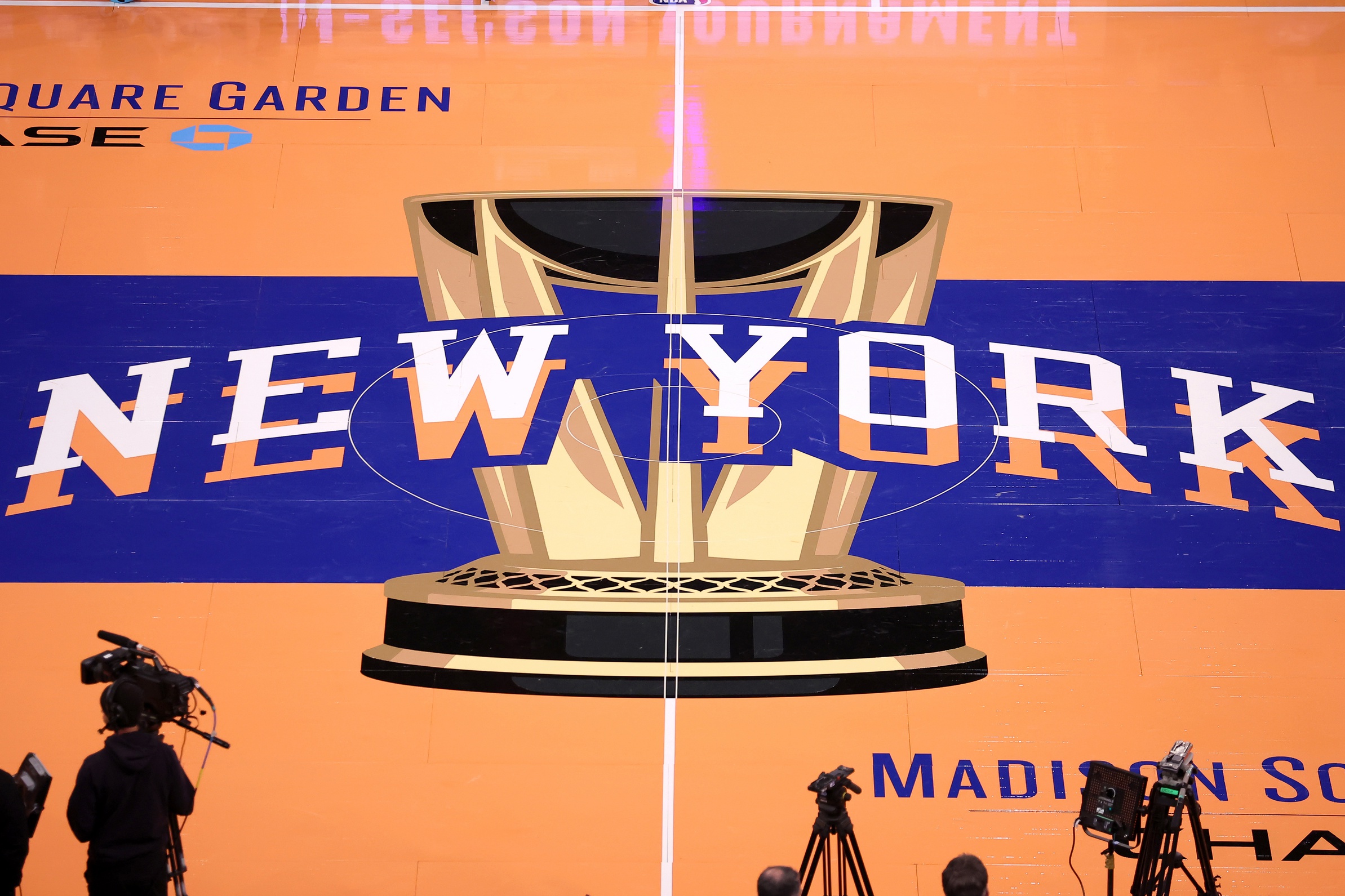The New York Knicks have shown remarkable creativity in navigating the NBA’s new collective bargaining agreement (CBA). With strict tax apron rules, many teams have struggled to maneuver within the financial limits set for the 2024-25 season. However, the Knicks found a loophole that allowed them to secure Karl-Anthony Towns without exceeding the second tax apron.
NBA Business: The Knicks Outmaneuver CBA With Loophole
Utilizing a Key CBA Loophole
One of the significant challenges teams face under the NBA’s new CBA is the inability to aggregate minimum contracts when making trades. This restriction can make it difficult to match salaries for big trades. This would have made the Knicks’ recent acquisition of Towns from the Minnesota Timberwolves impossible. However, the Knicks found a clever way to get around this rule.
The Knicks have discovered a new loophole in the CBA.
Teams in their situation cannot aggregate minimums anymore. So in the sign and trades of Jeffries, Brown and Washington, they are paying each of those guys just $1 above the minimum, league sources tell @TheAthletic.
— Fred Katz (@FredKatz) October 2, 2024
According to Fred Katz of The Athletic, the Knicks signed DaQuan Jeffries, Charlie Brown Jr., and Duane Washington Jr. to contracts that were $1 above the league’s minimum salary. This small increase allowed these players to be used in the sign-and-trade deal with the Minnesota Timberwolves. By doing so, the Knicks met the salary-matching requirements needed to bring in Towns’ hefty $49.2 million salary.
Avoiding the Second Tax Apron
Another obstacle the Knicks had to navigate was the tax apron. Under the new CBA, teams that go over the second tax apron face harsh penalties, including being hard-capped. This restricts them from using the mid-level exception, aggregating contracts in trades, or even sending out cash in deals. The Knicks, already above the first apron before this trade, had to be cautious.
Despite adding Towns’ salary, the Knicks managed to remain $3.6 million below the second apron. This move required expert financial maneuvering, as it would have been easy to push them over the limit. ESPN’s Bobby Marks has previously broken down the complexities of the apron rules, which demonstrate how difficult it can be for teams to avoid the most restrictive penalties.
By staying under the second apron, the Knicks have preserved their ability to make additional moves later in the season. For example, they can still sign players who were bought out, provided those players weren’t making more than the mid-level exception. This flexibility gives the Knicks an advantage as they continue to build on their strong roster.
A Three-Team Deal With Charlotte Hornets
To finalize the trade, the Knicks brought in a third team—the Charlotte Hornets. In this three-team deal, Jeffries, Brown, and Washington were sent to Charlotte. This allowed the Knicks to offload salary and complete the trade without breaking any of the CBA rules.
This multi-team structure is becoming more common under the NBA’s restrictive salary cap environment. By spreading out contracts and involving multiple teams, the Knicks created a pathway to acquire a superstar like Towns while maintaining future flexibility.
Knicks’ Future Cap Flexibility
The Knicks’ ability to execute a trade of this magnitude while staying under the second apron is a testament to their front office’s planning. Many teams are hamstrung by the new CBA, but the Knicks have found a way to increase their payroll without sacrificing future cap space.
The New York Knicks managed to increase their payroll in both the Karl-Anthony Towns and Mikal Bridges trades despite being an apron team.
They did this by inflating their outgoing salary required with every remaining free agent from last year they had some form of Bird rights…
— Yossi Gozlan (@YossiGozlan) October 2, 2024
Yossi Gozlan from HoopsHype pointed out how impressive it is that the Knicks increased their payroll not only in the Towns trade but also in their earlier trade for Mikal Bridges. Despite taking on significant salaries, the Knicks have managed to stay in a position where they can still make moves.
Impact on the Knicks’ 2024-25 Season
With Towns and Bridges added to the roster, the Knicks are poised for a deep playoff run. They have already proven they can compete at a high level after making the Eastern Conference semifinals last season. The addition of Towns gives them a legitimate star alongside Jalen Brunson. More importantly, the Knicks’ clever use of the CBA loophole has left them with room to adjust their roster if needed. Whether through additional trades or free-agent signings, the Knicks have options that many teams above the second apron do not.
Knicks CBA loophole Shows Their Cap Wizardry
The Knicks have displayed masterful financial creativity by using a CBA loophole to acquire Towns while staying under the second tax apron. This move highlights the importance of understanding the NBA’s new salary rules and how teams can exploit them to build a championship-caliber roster. For the Knicks, this deal represents not only a significant addition to their talent pool but also a strategic win that could set them up for future success.
With room to maneuver and one of the most talented rosters in the league, the Knicks are well-positioned to improve on their deep playoff run last season. As other teams struggle to adjust to the restrictive new CBA, the Knicks’ ability to think outside the box may prove to be their biggest competitive advantage.






